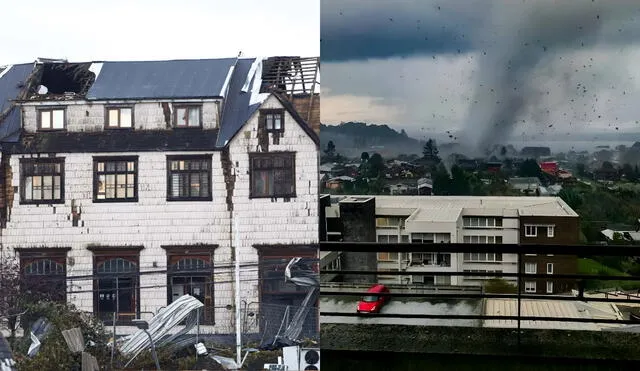Tornado Strikes Puerto Varas, Chile: Red alert declared
With winds reaching up to 178 km/h, an unusual tornado swept through Puerto Varas in southern Chile, knocking out power to over 17,000 homes, according to Chile’s disaster response agency, Senapred.

Puerto Varas, southern Chile, experienced a surprise EF1 tornado that affected the local area at ground level. Wind speeds reached 178 km/h, causing wide-ranging damage throughout the city center. Roofs were torn off of houses and commercial buildings. Trees were uprooted. Power lines were knocked down. Approximately 30 homes were rendered unsafe, affecting over 17,000 residences' electricity. Emergency services quickly mobilized once the tornado left the area.
The National Disaster Prevention and Response Service declared a red alert for the area. The mayor, Tomás Gárate, advised that eight individuals received minor injuries, and temporary shelters were established for those displaced by the tornado. Cleanup crews have been working non-stop to remove the tornado debris and restore power, although power outages are expected to last for hours. The community remains highly vigilant as recovery processes continue.
Lack of early warning technology
Meteorologist Gianfranco Marcone criticized Chile's lack of Doppler radar technology, which is essential to detect tornadoes 15 to 20 minutes before impact. Without this equipment, warnings are broad and imprecise, making it difficult to prepare residents effectively. The event highlights significant gaps in the country’s disaster readiness infrastructure.
Chile’s Meteorological Directorate classified this tornado as the most powerful in the region in three decades, linked to a highly unstable frontal system. This rare phenomenon has sparked calls for updated emergency protocols and enhanced early warning systems. Authorities face pressure to invest in modern technology to mitigate future tornado risks.
Community impact and future preparedness
Residents are enduring storm damage and power outages with support from emergency authorities. The storm created havoc in daily routines, with school suspensions and transportation shutdowns. Restoration efforts to residences and vital infrastructure are now in process, and emergency teams are working quickly to prioritize what areas were most impacted.
Climate change experts warn that climate change may bring more extreme weather events to southern Chile. This tornado has sparked intense discussions about climate resilience and disaster risk policy. Officials are prioritizing building community awareness and capacity to respond.













